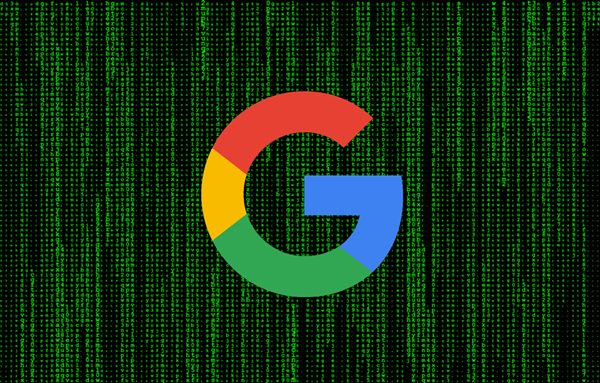So while this brings out a frightening picture of our dependency on one single corporation, there’s probably much more to that than what meets the eye. Gmail, YouTube, Photos, Docs, Slides, Spreadsheet, Meets, these aren’t just some of the most popular Google services but also the ones that were severely affected by this outage. Along the same lines, apps such as Uber, Airbnb, Netflix, Pinterest, Spotify, Twitter, and countless others are also dependent on Google and hence got affected in one way or the other. Getting kicked out of Google Meets and not being able to attend online school lectures were some of the glaring difficulties faced by the student and professionals. Infact, one user (Joe Brown) even tweeted that he was forced to sit in the dark since his home lights are controlled by Google Home. Another scary instance of our blind trust in the Silicon Valley giants.
— Joe Brown (@joemfbrown) December 14, 2020 So what lead to this issue? Well, as per Google, the issue was with the company’s login credential authentication related to Gmail and YouTube. They also added the point that this issue isn’t related to any type of Cyberattack. Well, the latter half of the statement was quite hard to digest for a niche segment of users, including myself. Consider this. Is it really possible for a giant organization like Google to have all its services to suddenly suffer a massive outage and shut down, for near about an hour, across the globe? Issues with one or two servers in a particular region usually happen with many different organizations. But (again re-iterating the fact) isn’t it strange for all of Google servers to fail across the world for nearly an hour? Well, it definitely is. For these instances, there are always backup servers and this search engine giant has them as well. So how come at that point in time even those backup servers failed? Joining all these dots and we might have to look out for an alternate theory: were the Google servers on the verge of being hacked? It could definitely be the case, considering what happened just a few moments before. Only a couple of hours before the server issues, one of the biggest cyberattacks on the US Government took place. Such was its impact that it lead to an Emergency National Security meeting in the White House. Some experts even called it one of the most sophisticated hacks ever seen. The affected parties included 425 out of 500 fortune 500 companies and all the top 10 telephone operators in the US. Some other big names such as the US Department of Homeland Security, Department of Justice, Department of Defense, The Department of Treasury, National Security Agency, NASA, Centre for Disease Control and Intervention, The State Department, The Justice Department also faced the wrath of this attack. It was a Supply Chain hack: instead of directly attacking a private organization’s network, hackers target the third-party vendors that supply software to these organizations. In this case, the hack was carried on an IT Management software known as Orion which is supplied by the SolarWinds company. Orion was infected by malware by the hackers during an update. As and when the companies updated their software, the malware found the perfect route to enter their system. This then paved the way for the hackers to monitor some of the most confidential emails and carry out the desired snooping. What’s shocking is the fact that this update was released in March 2020, but was undetected until a couple of weeks back. All in all, over 33,000 companies use this Orion software developed by SolarWinds, out of which 18000 were affected by this hack. And since Google servers went down just a few hours after this attack, so it might be the case that the Google backend team were hurriedly trying to strengthen their servers in the shortest possible time. Because if they didn’t act quickly, then the repercussions would have been along the lines of something quite dreadful.
On a serious note, there are many skeptics who say one simply cannot hack the Google servers. Well, the same was true for NASA, and other USA Departments, but it didn’t turn out as intended. Anyways, all this begs for an all-important question- what if the next time Google goes down for an entire day? The possibilities are rare but are still there. And if that ever happens, the results would be quite drastic and of pandemonic nature, to say the least. So we should all take it as a wake-up call and look out for life beyond Google. There are quite a few handy alternatives to each Google App, Product, and Services. Search could be replaced by Bing or Duck Duck Go, YouTube by Vines, Chrome by any of the non-Chromium browsers such as Tor, Gmail by Proton Mail, Drive by Dropbox, and the likes. All in all, the message seems to be clear, it’s high time now that we start to curb our dependency on Google. Escaping ourselves from the clutches of the Google ecosystem is no easy task. More so since all these services are interlinked with our Google ID and get synced across all the devices. So the road ahead might look like the one less traveled by, but since Robert Frost decided to take it, so could we! What are your views on all this? We would love to listen to your valuable views and read your insights in the comments section below. Rounding off, stay safe, stay healthy, and cheers to 2021! Some Other Interesting Reads from the Admin of Droidwin:
Bypass New Google Restriction: Get Free Unlimited Photos StorageHow to Get a Temporary Blue Tick on InstagramHow to Restore an Old WhatsApp Chats BackupEdit any Webpage, Website, or even WhatsApp Chats (Both Sent and Received)!How to Replace Reels with the Search bar on Instagram
About Chief Editor
